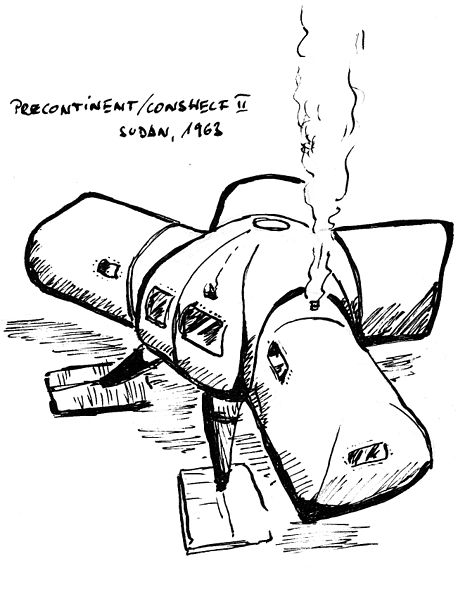Colonel William Paul Fife USAF (Ret) was a United States Air Force officer that first proved the feasibility for U.S. Air Force Security Service airborne Communications Intelligence (COMINT) collection and Fife is considered the "Father of Airborne Intercept". Fife was also a hyperbaric medicine specialist who was known for his pioneering research on pressurized environments ranging from high altitude to underwater habitats. Fife was a Professor Emeritus at Texas A&M University.
William Paul Fife
Inside Hydrolab
Underwater habitats are underwater structures in which people can live for extended periods and carry out most of the basic human functions of a 24-hour day, such as working, resting, eating, attending to personal hygiene, and sleeping. In this context, 'habitat' is generally used in a narrow sense to mean the interior and immediate exterior of the structure and its fixtures, but not its surrounding marine environment. Most early underwater habitats lacked regenerative systems for air, water, food, electricity, and other resources. However, some underwater habitats allow for these resources to be delivered using pipes, or generated within the habitat, rather than manually delivered.
German underwater laboratory, "Helgoland", 2010
Man-in-the-Sea I – a minimal habitat
Conshelf II – Starfish
Conshelf III






